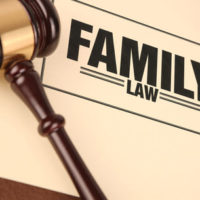
 Back in 1996, North Carolina engaged in a redesign of the in-state legal system. At the conclusion of this process, the Commission for the Future of Justice and the Courts in North Carolina issued a report, titled “Without Favor, Denial or Delay,” outlining a number of recommendations to overhaul the state legal system.
Back in 1996, North Carolina engaged in a redesign of the in-state legal system. At the conclusion of this process, the Commission for the Future of Justice and the Courts in North Carolina issued a report, titled “Without Favor, Denial or Delay,” outlining a number of recommendations to overhaul the state legal system.
Among those recommendations, the Commission called for the creation of a unified court system for family law that reached across North Carolina. Before North Carolina established a statewide, unified system for family court, domestic claims were rarely heard in the same courtroom.
The spouses would file for divorce and divide up marital property before one judge. Then another judge could hear the child custody case. A third judge might end up presiding over any claims for child support. In cases of domestic violence, there was likely a fourth judge involved.
Overall, the past system wreaked havoc on families already reeling from instability at home. The lack of a unified process led certain parents and children to go before multiple courts to resolve a domestic issue. That meant that domestic issues could drag on for much longer than necessary, stretching out the amount of time that families had to deal with stressful domestic issues.
To help address this inefficiency, the Unified Family Court system requires all matters involving a single family to come before a single court. In this way, the courts could better serve families in a consistent and efficient manner. Unlike the past – with domestic actions segmented across multiple courts – the Unified Family Court system allows the same judge to review child custody and support, divorce and domestic violence claims.
In order to establish the Unified Family Court system, the Commission identified 10 best practices for a successful family court, including:
- Deliver leadership and guidance from judicial officials and staff;
- Provide one court for all issues affecting a single family;
- Employ case management standards for timely resolution of domestic issues;
- Leverage Alternative Dispute Resolution (ADR) for efficient conflict resolution;
- Ensure specialized training available to judicial officials and staff;
- Maintain high standards for customer service;
- Offer other court and community services as needed; and
- Collaborate with local Family Court Advisory Committee (FCAC).
Let Us Help You Today
From domestic violence to divorce and child custody, the family law system deals with many sensitive subjects. In this context, it is vital to take proceed cautiously and reach out to a skilled attorney. The legal professionals at Powers Landreth PLLC in Charlotte are prepared to work aggressively on your behalf today.
Resource:
nccourts.org/Citizens/CPrograms/Family/Documents/unifiedfamilycourts-guidelines.pdf
Related Posts
Exploring North Carolina’s Unified Family Court System
Back in 1996, North Carolina engaged in a redesign of the in-state legal system....

